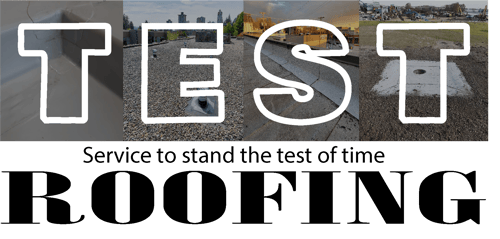Frequently Asked Questions
What primary services do you offer?
On all common flat roof systems, we offer many services including, but not limited to:
1) Roof Maintenance
2) Roof Repairs
3) Leak Investigations
4) Debris Removal
5) Drain Clearing
6) Installations
I have a leak! What do I do?
Ensure a bucket is underneath the leak to help mitigate water damage. Assess leak to determine if it is an emergency ( I.E Water pouring into building / multiple leaks / large bubbling of drywall or property damage). Call/Email us with your address and a time/date you can provide access. We need to see the leak from the inside and access to a roof hatch, if applicable. Meet us at the scheduled time, and wait for the work to be completed.
Are you insured?
Yes, we are insured with WCB and have limited liability insurance up to $5,000,000.
We also have a dedication toward safety. The company has had zero safety incidents due to a safety orientated attitude that goes "above and beyond". We are trained to identify hazards immediately and refuse unsafe work.
Can you do repairs in the rain?
No. Most repairs performed require dry weather. We will provide temporary repairs in the rain for any leaks, however, any water/moisture can compromise the integrity of our work, so it is best to schedule for work on a dry day. This will ensure top quality repairs are performed. We offer warranties on our repairs, and rain/moisture compromises warranty.
When should I get a roof maintenance?
Every roof is different, and has different needs. We recommend a first time maintenance inspection to assess all issues (if any) with the roof and provide a quote to fix those issues. After first time maintenance and quotes have been completed, we recommend a semi-annual maintenance as the standard, and suggest quarterly for roofs that have high amounts of debris
We recommend most roof systems on our maintenance program as there are many benefits such as:
1) You are kept up to date on the roof condition
2) Drains don't get clogged as often, if at all, preventing costly leaks or extensive damage
3) Easily preventable leaks do not occur from B vents, holes in corners, unchecked blisters, and plumbing vents
4) Improper roofing details/installs get addressed and corrected
5) Debris doesn't build up on roof, contributing to drain clogging
6) Clogged drains that cannot be cleared by us can be addressed immediately by a plumber
7) Roof system can improve overtime due to preventative repairs, extending it's life
When should I replace my roof?
There are many types of roof systems with different types of life expectancies. Even one system can have different varieties that affect life expectancy.
For example, a "45-mil" Sure Seal Ballasted EPDM system will have a shorter life expectancy than a "75-mil" Sure Tough Fully Adhered system.
If the roof leaks often or in multiple areas, it can be a sign that replacement is needed.
It is helpful to refer to:
1) Warranties
2) Installation dates
3) Type of roof system
This being said, we can give you an idea of the roof condition, and do so in our maintenance programs. We will refer to a roof as: Good, Fair, Poor, and Failed. If your roof system is in poor condition, it can sometimes be revitalized, depending on the system and issues that need to be addressed. However, roof systems referred to us as "Poor" or "Failed" should be replaced as soon as possible, as leaks will be commonplace.
